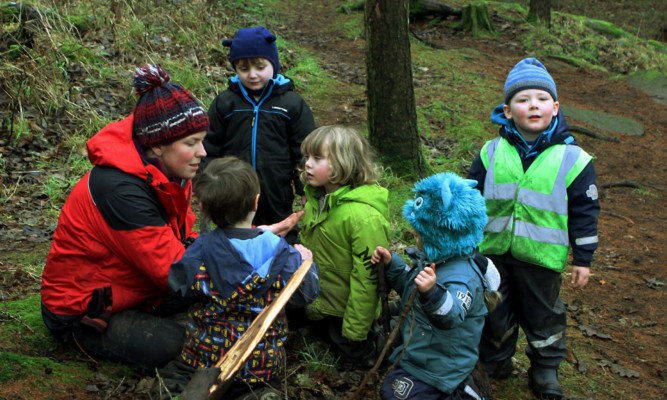A radical campaign to keep children out of school until the age of seven is being tabled in Tayside and Fife.
More than 90 parents, teachers and other interested parties packed into Collessie Victory Hall in Fife for Upstart Scotland’s inaugural meeting to hear more about calls to introduce a kindergarten stage for three to seven-year-olds.
International evidence suggests that children under the age of seven can benefit from an educational approach that gives them more opportunities to learn through play, especially outdoors, and an approach that develops their spoken language and social skills, rather than pushing them towards early academic achievement.
The first Fife meeting was hosted by Cathy Bache, founder of the Secret Garden Outdoor Nursery in Letham, and she believes there is a real appetite for the idea to be taken forward.
Further Upstart meetings are planned over the next few months, while the launch of the Dundee network is due to take place at Dundee University’s Dalhousie building on Tuesday at 6.30pm, with research scientist Suzanne Zeedyk the guest speaker.
Following the Fife meeting, Mrs Bache said: “This isn’t about preventing children learning, and if there is a child in a kindergarten stage that obviously has got the thirst to read and write and learn then that would be encouraged.
“But I’m very well versed with young children from the Secret Garden point of view about the benefit of not starting formal education until children are ready, and that’s the key here.
“Children are being sent to school for formal learning and they are not ready to learn because they haven’t developed through play and exploration.
“It would be a big legislative change but I think it would be a powerful step to take.”
Guest speakers at the inaugural meeting included broadcaster and journalist Lesley Riddoch and Sue Palmer, author of Toxic Childhood which asks if a 21st Century lifestyle is damaging our children.
Mrs Palmer said: “Many research studies have now linked an early start on formal education to social emotional and mental health problems as years go on.
“It’s time to change.
“Scotland has a long tradition of high-quality early years provision, and our early years teachers are trained in the same principles as those in the successful European systems.
“We could build on this expertise and lessons from countries like Finland and extend the early years educational ethos for a further two years.”
Shelagh MacLean, Fife Council head of service, said all local authorities work within the legislation which states that a child must start school when they are five years old.
“All the evidence shows that it isn’t the length of the school term, the time children spend in school or the class sizes which have most impact on outcomes; it is the quality of learning and teaching, the professional learning of the teaching staff and the quality of leadership which we believe improve the outcomes for our children.”
